Latest news and innovation
POLYCOM STABILISING AID - HIGHLY EFFECTIVE YET SIMPLE ROAD STABILISER

Latest news and innovation
POLYCOM STABILISING AID - HIGHLY EFFECTIVE YET SIMPLE ROAD STABILISER

Road asset and erosion control solution post fire with PolyCom Stabilising Aid*
Huge efforts have already been focused by state, federal, and local government, as well as private entities, on stopping the fires and reducing damage…Read more in LG FOCUS
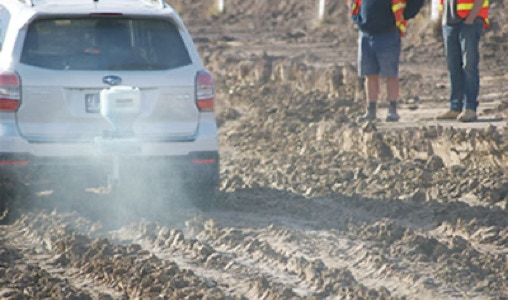
This PolyCom-stabilised road has survived widespread flooding in Western Australia. Erosion stops where PolyCom treatment begins. Approximately 18 months ago, this section of road in Western Australia was treated with PolyCom Stabilising Aid. Australian made PolyCom was blade mixed into the region’s naturally occurring materials, before the road was compacted and then sealed.
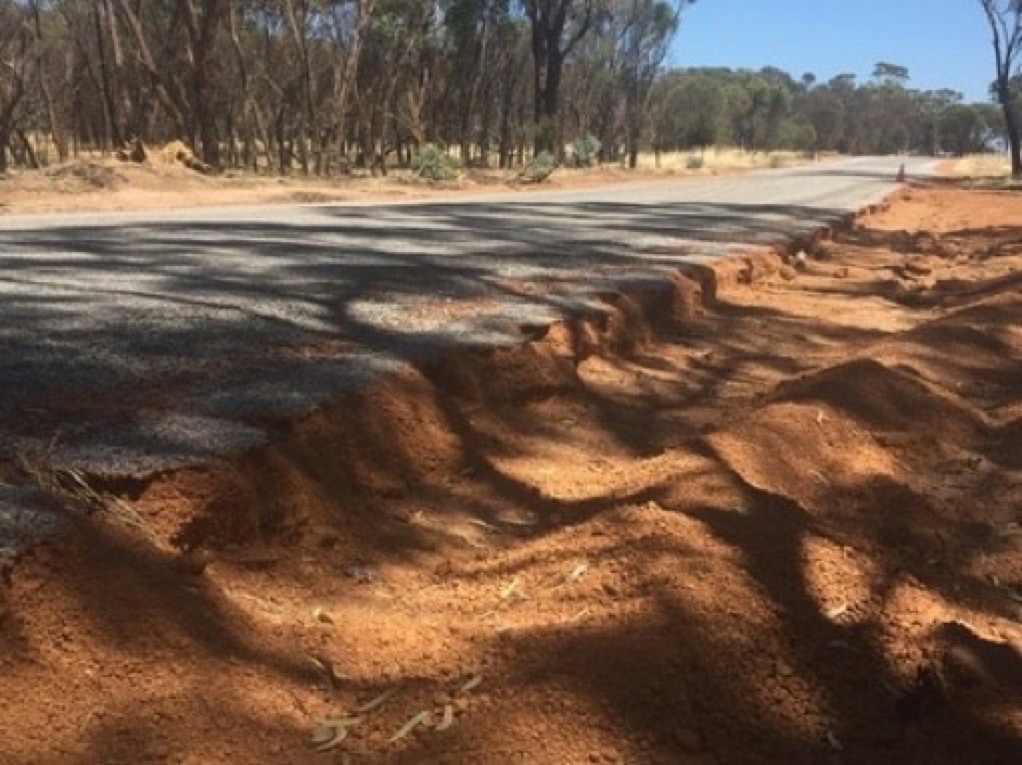
A haul route for heavy trucks and b-doubles, the road services a cattle feed lot. Running through a natural basin, the road is susceptible to flood damage. As can be seen in the photographs, the sealed road has scoured back to where the PolyCom layer was put in.
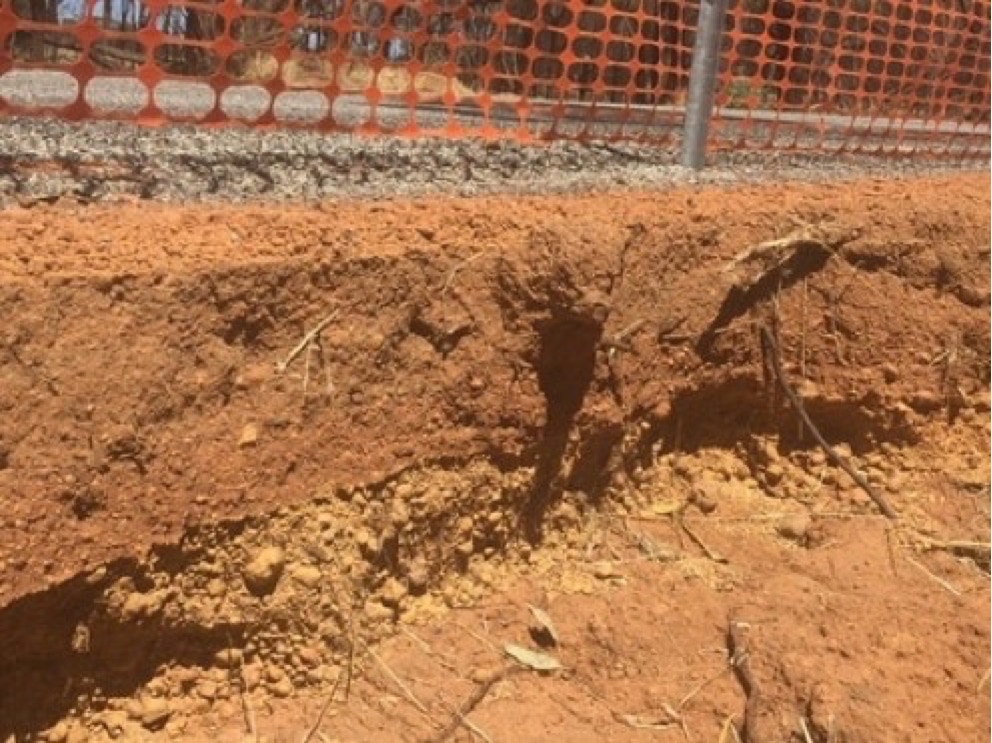
“There's no punching of aggregate, no deformation, and no lifting of the seal,” says Paul Bright from Betta Roads, who worked with the council to apply PolyCom Stabilising Aid during re-construction of the road. “All in all the treated section remains untouched.”. PolyCom binds the road materials tightly to produce a stronger pavement that is more resistant to water ingress and heavy traffic wear. Find out how to stabilise roads with PolyCom Stabilising Aid. Get in touch.
Widespread flooding during 2016 resulted in damage to a number of road networks across Australia. Flood recovery works are underway, with councils and road authorities rebuilding damaged roads with a simple change to the way things have always been done. Whilst re-sheeting is often thought of as the easiest method with which to rebuild flood damaged roads and repair pavements, in reality it is not efficient or sustainable.
PolyCom Stabilising Aid enables crews to use the material that is already in the road or table drains to make a stronger pavement, rather than trucking in new materials for re-sheeting, as has been the most common flood repair fix in the past.
PolyCom is not only a simple and cost-effective solution for flood repair. When PolyCom is mixed into existing road material and compacted, the finished road pavement is stronger and longer lasting. It resists traffic and water damage into the future.
PolyCom is so effective that it will pay for itself by reducing the amount of new gravel required, with most roads needing 4 to 6 times less maintenance grading or attention after being treated.
A council or department will find that PolyCom can be added to the maintenance method and schedule they have been familiar with, without disruption. Crews become used to using in-situ material to repair flood damaged roads. They become used to recycling road material rather than importing material. Crews become used to maintaining roads with PolyCom.
PolyCom can repair and rebuild a road more easily and cost-effectively in the face of shrinking budgets and increasing flood repair backlogs. Improved efficiency by way of better time management, lower plant and manpower requirements, as well as a lower carbon footprint, make PolyCom Stabilising Aid a compelling solution.
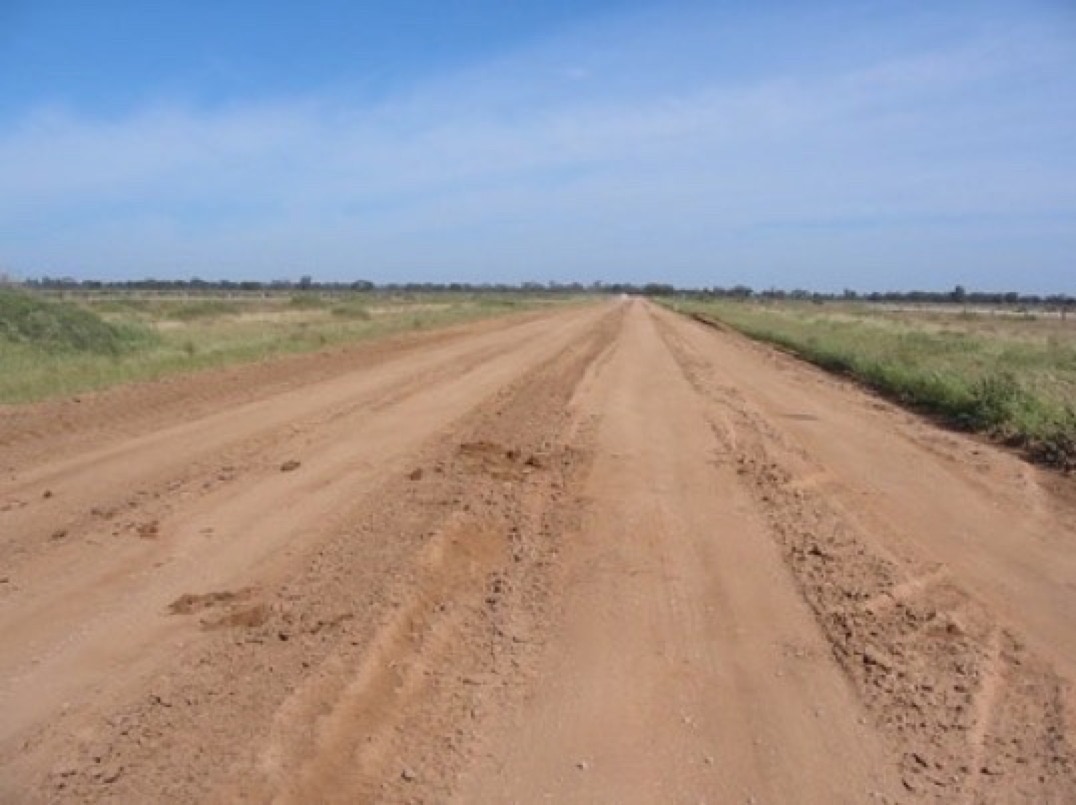
West Australian PolyCom distributor Betta Roads recently worked with a Shire to upgrade a grain haul route with PolyCom in the wheatbelt region.
The area is the source of nearly two thirds of the state's wheat production, half of its wool production, and a range of other agricultural and pastoral products.With considerable effort made to support the efficient transport of goods out of the region, the existing road maintenance regime for one local shire was becoming unrealistic in both cost and resource management.
In a road widening and reconstruction project, the Shire decided to use PolyCom Stabilising Aid to strengthen the base course.
Three years on, the Shire has used PolyCom on approximately 15 kilometres of road per year to reduce degradation and road failure, and overall wear on the sealed surface.
The PolyCom stabilisation has created a far better outcome for this problem area, resulting in:
Maintenance on the PolyCom treated sections of road have been reduced, making for a sustainable solution where resources can be utilised to do other works required.
Traditional road construction methods suggest there is an upper limit to CBR readings that will result in cracking. However, by maintaining flexibility of the treated pavement and raising overall pavement strength, PolyCom has allowed maintenance crews to achieve much higher CBR values using the material already present in these roads without failure. This factor allows use of lower grade materials that will generate a superior outcome. The use of PolyCom has saved considerable resources for the Shire, and lead to fewer complaints from the public.
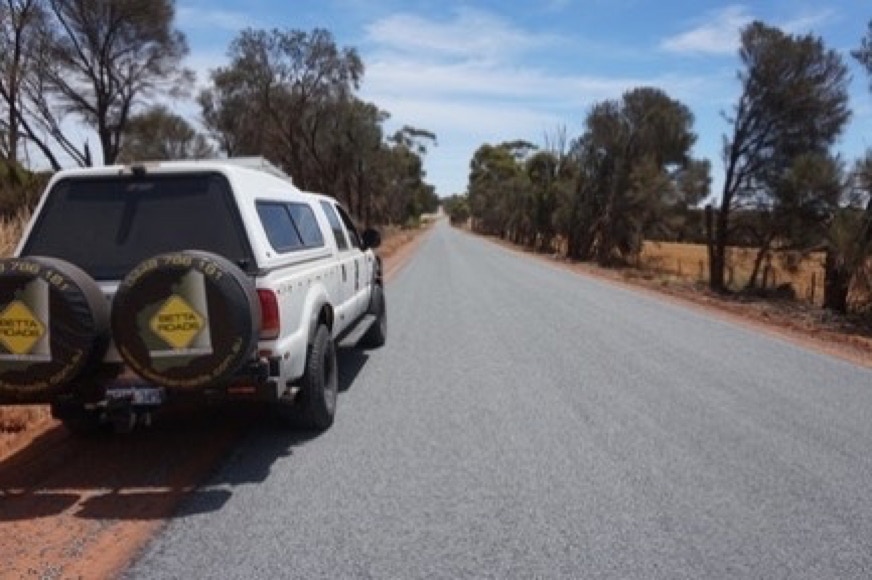
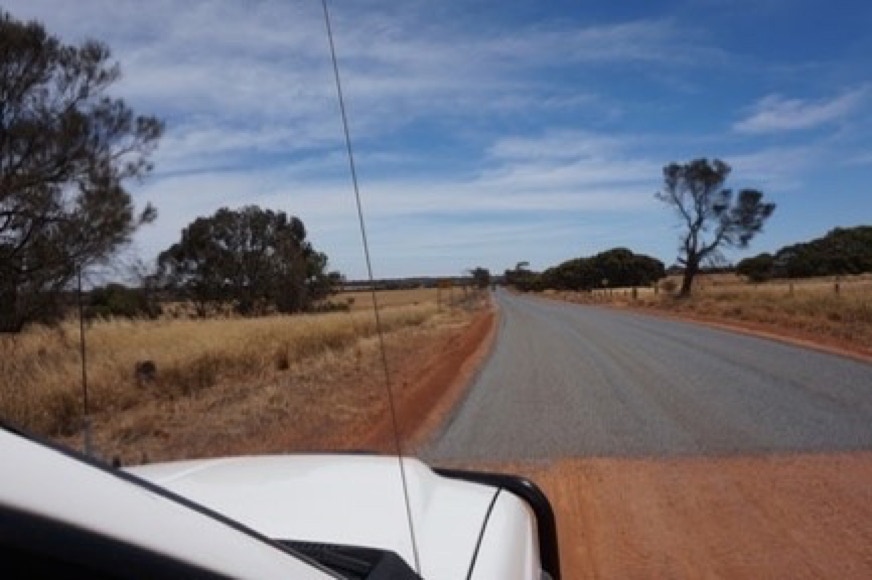
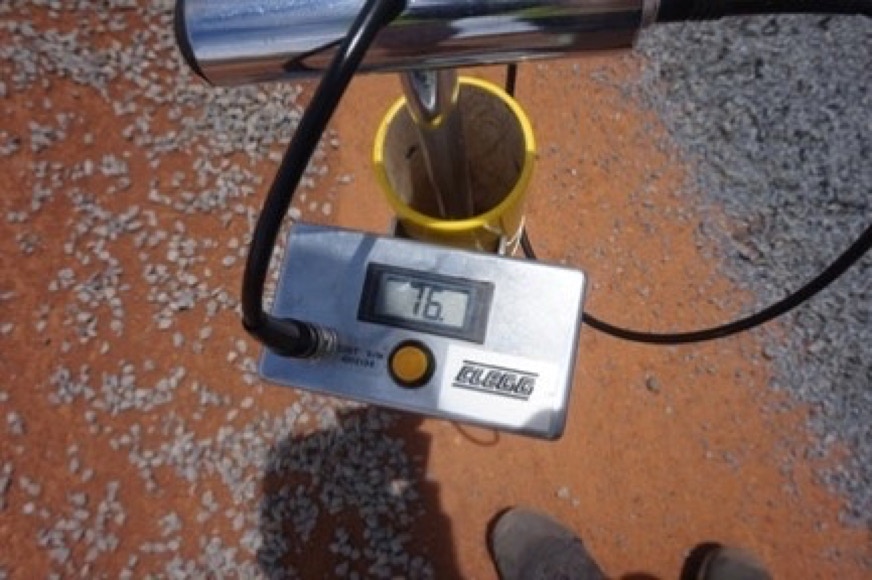
S Camarena (1)1Factor Ten, Vic
This paper summarises the latest research in the context of national and international asset climate resilience and life-cycle costs assessment trends. Based on Australian on-the-ground experience, it proposes a step by step approach to sustainable unsealed roads maintenance.
The realities of operating "as we always have" changed and maintaining roads in a world of finite resources requires a circular view of the work. This pushes all involved in public works to consider rejuvenating the road by re-cycling in-situ material, stabilising with environmentally friendly additives and ensuring quality water run off. The benefits need to be calculated over the life cycle of the asset and include externalities. However with ongoing cuts to their budgets, raw materials increasing cost and growing road users expectations, asset managers struggle to move out of the day to day priorities to establish more resilient and sustainable maintenance regimes. A series of case studies and research papers were conducted demonstrating the ability to use an environmentally friendly polymer-based product to stabilise unsealed roads with significant financial results (70% cost reduction over 5 years), environmental savings (90% carbon emissions, 80% water usage) and structural benefits (increased density, strength, elasticity and toughness).
Collaboration between suppliers, local councils, universities, engineering and mining companies provided insights on how to integrate the use of innovative products and methods, and the ability to present a business case for the long-term financial, operational and environmental benefits.The results point to increased financial and climate resilience for the maintenance of the assets demonstrating that it is possible to cut the costs of the maintenance programme whilst improving the pavement performance. The demonstrated leadership also paid off in the level of innovation and collaboration shown by the teams involved and how they significantly reduced the environmental impacts of their activities.
Councils rise to the innovation challenge, delivering more with less
For many councils road maintenance is the biggest drain on financial resources. And despite deteriorating road networks, it is often the case that road budgets are shaved as other priorities demand attention. Under these challenging conditions, councils must rise to the challenge to deliver more with less.
Since its introduction to local government 12 years ago, in-situ road stabilisation with PolyCom Stabilising Aid has provided many councils with a means to get more out of unsealed road budgets by reducing maintenance on unsealed roads. Whilst existing road maintenance practises demanded regular grading intervals and gravel re-sheeting, PolyCom enables councils to forgo much of the cost of re-sheeting and maintenance grading whilst improving the quality of local roads.
PolyCom is a high-quality polymer road stabilisation additive that is engineered and manufactured in Australia for local conditions. PolyCom binds the existing materials in the road to build a more resilient, water resistant pavement.
Early adopters of the innovative PolyCom stabilising practise report a reduction in unsealed road maintenance grading from four to six times a year to just once. In some situations, gravel is no longer needed to re-sheet the road. Over the years, the extension of grading intervals has enabled many councils to vastly improve the standard of unsealed roads across the entire road network.
PolyCom Stabilising Aid has stood the test of time, delivering significant financial savings for local government.
With an unwavering commitment to customer service, PolyCom consultants provide extensive assistance, expertise and advice for work supervisors and crews on the ground to ensure immediate results and long term savings.
To connect with your local distributor and find out how a little PolyCom goes a long way call 1800 790 907 to speak with one of our experts.
The PolyCom road stabilising system is gaining traction from state to state as road makers across Australia celebrate savings on unsealed road maintenance.
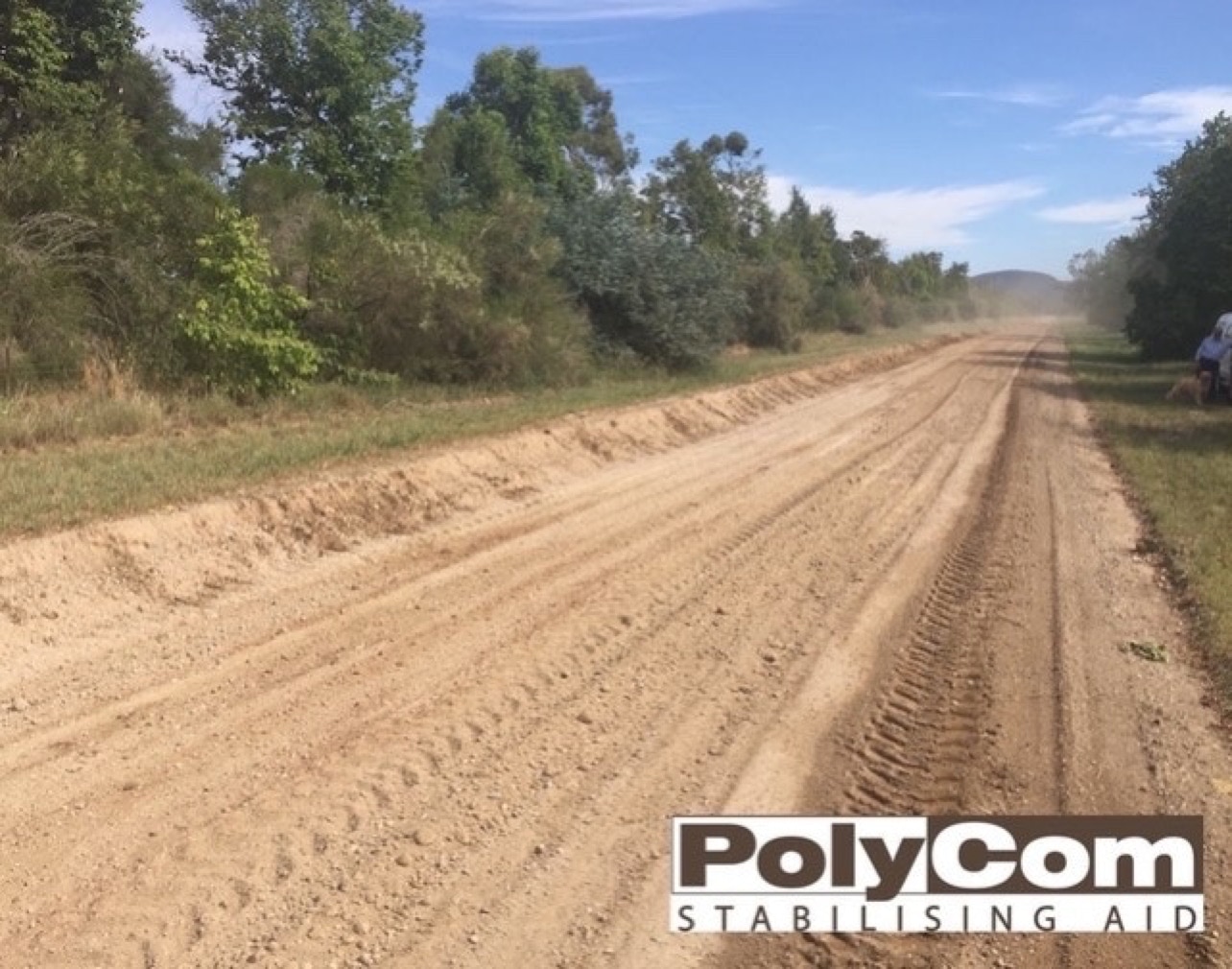
From Cairns to Canberra, Perth to Alice Springs and everywhere in between, treating unsealed roads with PolyCom Stabilising Aid isa winner in the face of road maintenance issues.
In the last few months, the Australian made polymer binder has worked its way through naturally occurring sub grade, pit gravel, natural soils and high quality crushed rock for a large number of different projects in road construction, mining and earthworks across the country. Used on unsealed roads, access roads, airfields, mining haul roads, harvesting roads, carparks, hardstands or anywhere the earth is moved, PolyCom proves to be extremely versatile and cost-effective.
PolyCom enables Shires and road builders to produce a stronger pavement with the materials at hand. The increase in resistance to water ingress and traffic wear on roads treated with PolyCom results in a significant reduction in road maintenance costs, saving time, money and resources.
PolyCom works in difficult materials that would normally be wasted or thought unsuitable, materials with a high clay content or a low clay content such as sandy clay.
With dedicated distributors in every state, you can rest assured that you will have local knowledge and experience at hand to enable you to get the best possible results. PolyCom Stabilising Aid is a trusted polymer stabiliser used for over 12 years in the field. The fast application process does not require an investment in specialised equipment, making it easy to understand why road makers are increasingly turning to the PolyCom stabilising system for efficient management of road infrastructure. Find out how to apply PolyCom road stabilising aid to almost any material. CONTACT US
Presentation to the WA Works and Parks Annual State Conference 14th August 2014 by Stephanie Camerena.
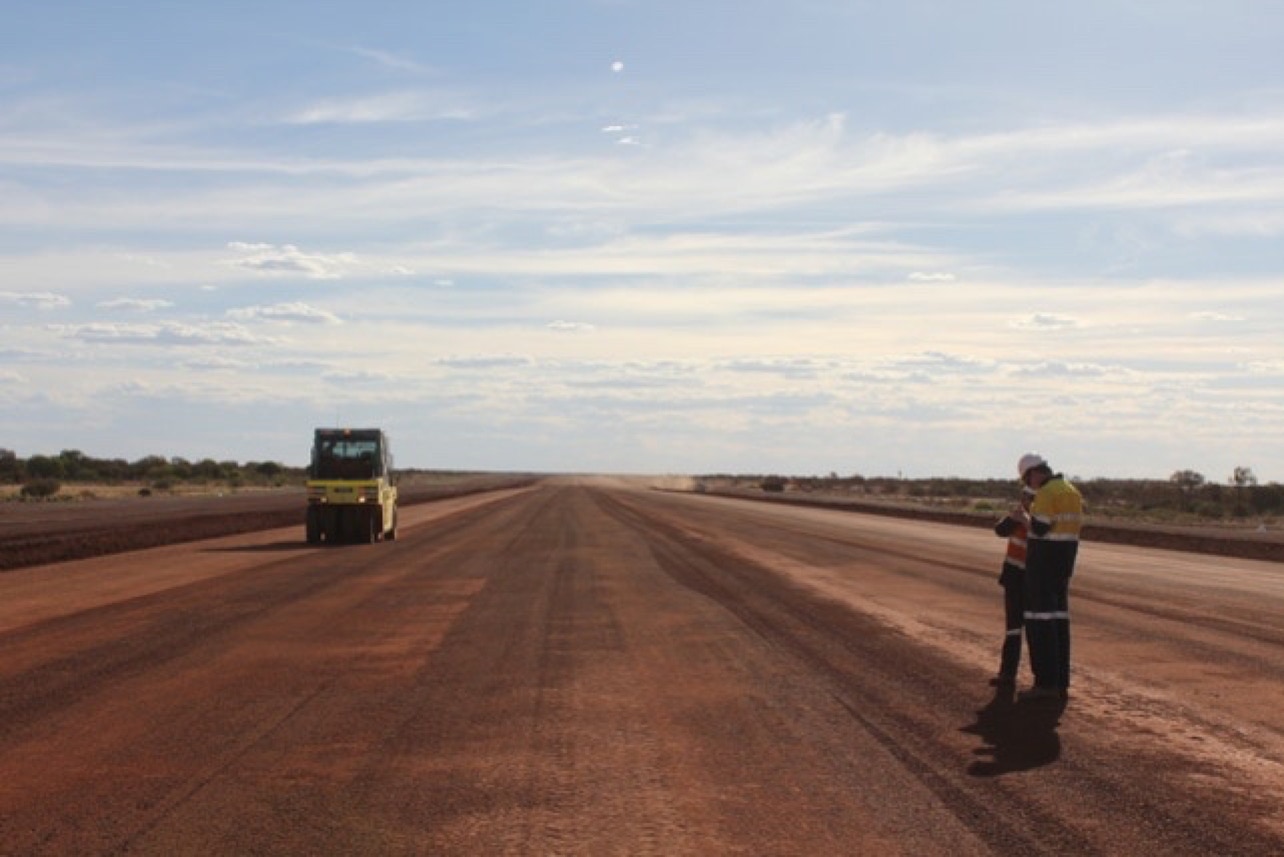
PolyCom treated Airstrip nearing completion
The pictures below illustrate the effectiveness of PolyCom in stopping erosion by strengthening the pavement materials.
This floodway in West Australia was constructed in 2012, and treated with PolyCom. The road has since experienced four separate flood events, where the untreated sections have been washed away. The washed away areas have been rehabilitated without PolyCom treatment and have subsequently washed away again.
The PolyCom treated road has resisted the flood waters, which can be seen from the distinct line separating the PolyCom treated section from the untreated section, approximately two metres from the edge of the seal in the images below. Erosion begins where PolyCom ends.
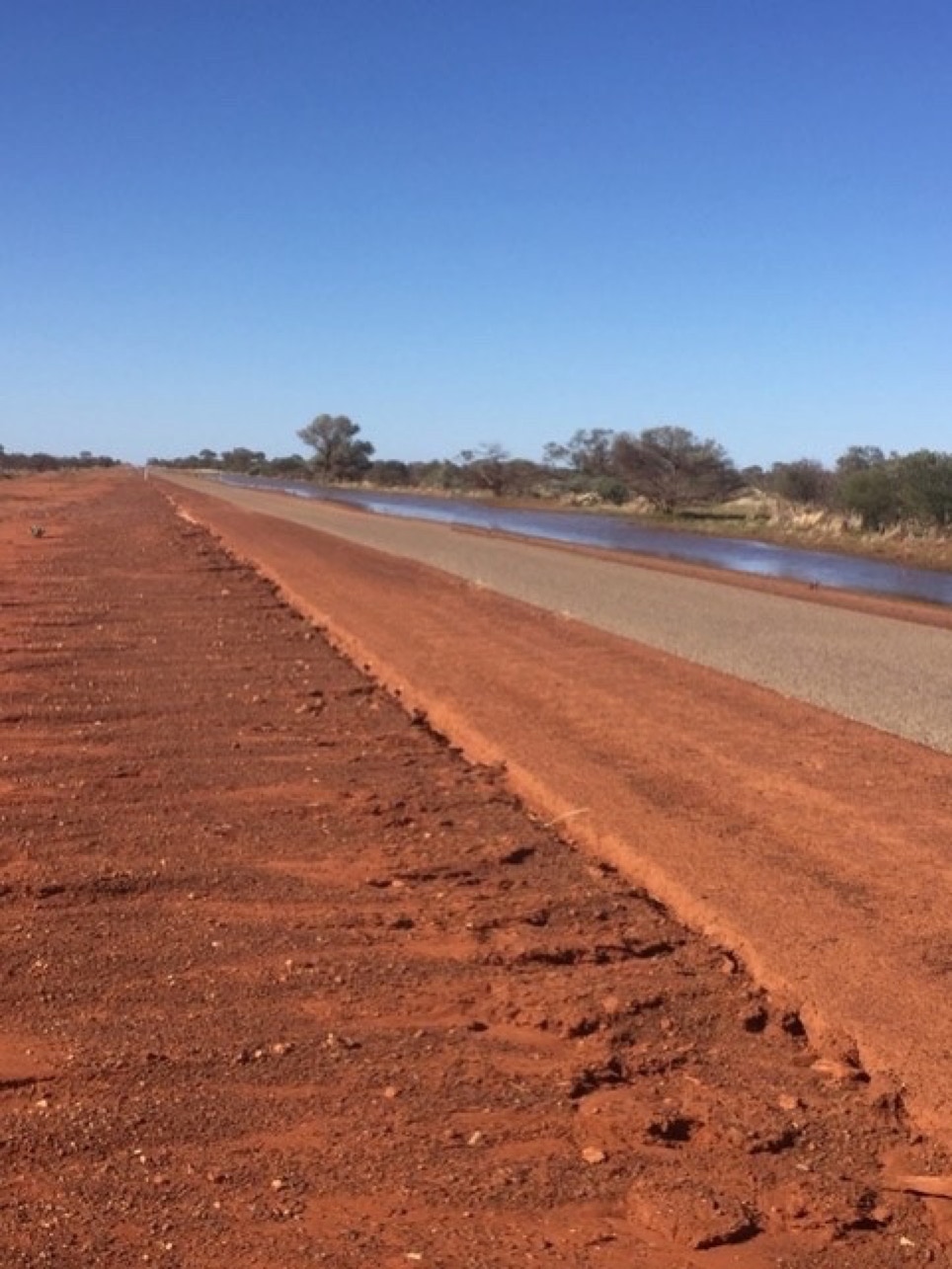
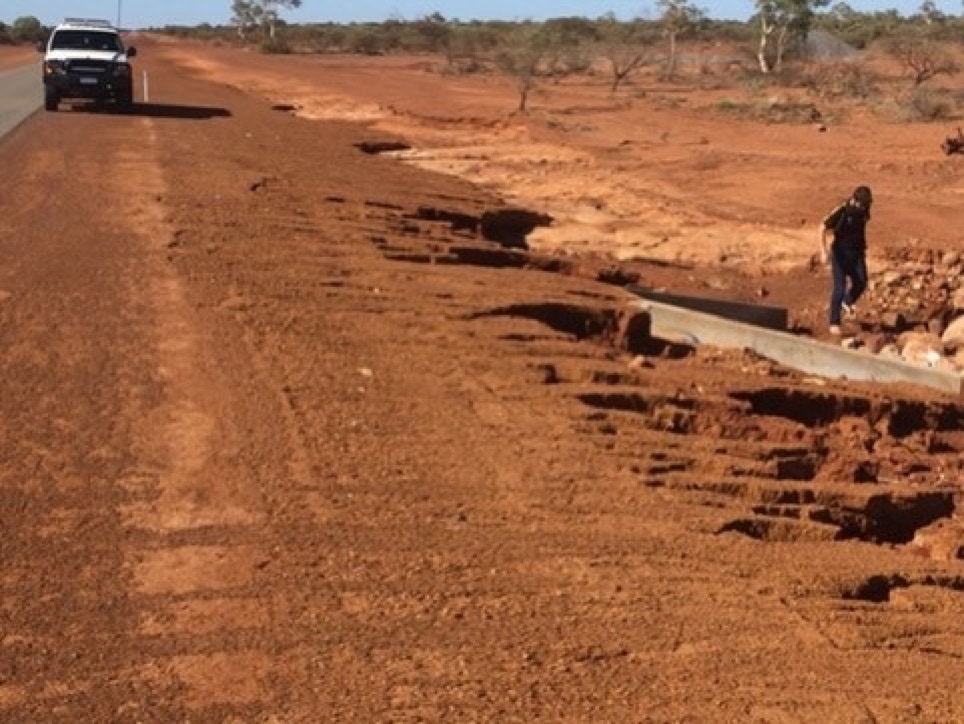
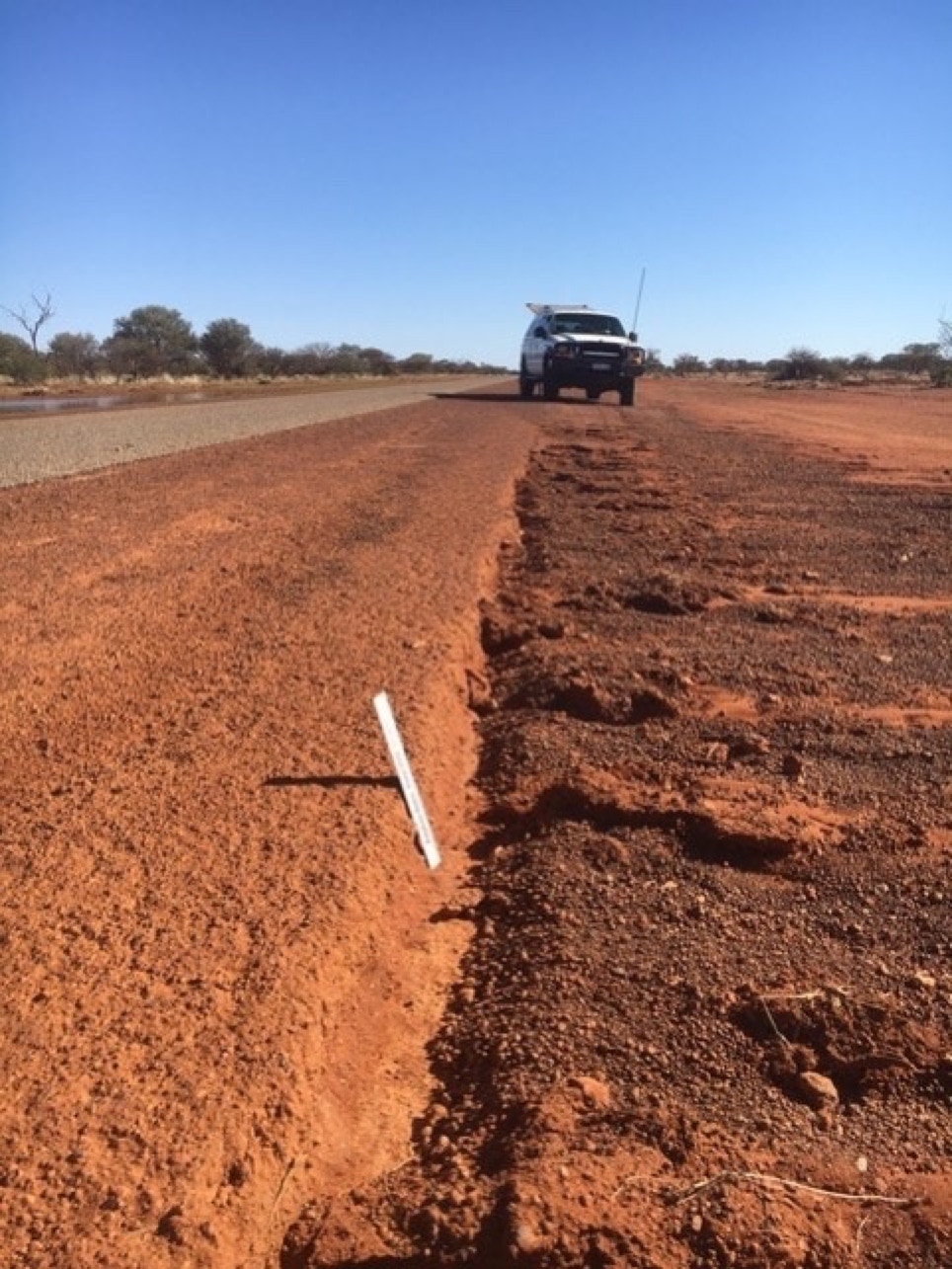
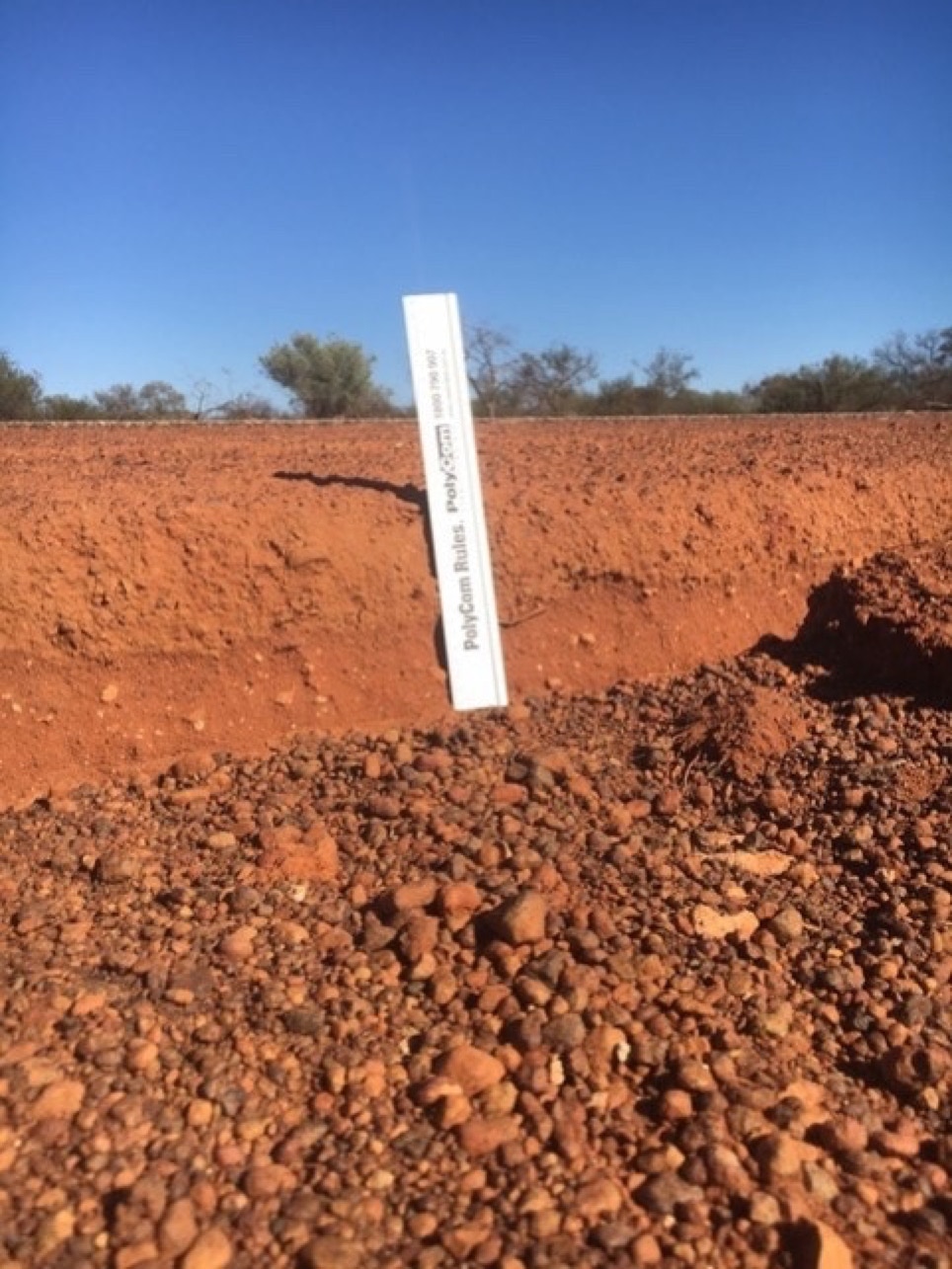
Make the choice to invest in making your roads stay where you want them to be by choosing PolyCom Stabilising Aid.

This busy tourist access road in Western Australia consists of collapsible soil that makes for challenging driving conditions. However an Australian-made innovation provides the ideal solution.
This busy tourist access road in Western Australia consists of Pindan sand-clay. With 150mm of loose material, the road surface is prone to blow outs.

Simply avoiding the use of highly erodible materials is often considered too high a cost when resources are scarce. As a result, constructing roads to survive traffic and harsh weather conditions from material highly susceptible to erosion is a major challenge.
But with an application of PolyCom Stabilising Aid, these are problems of the past.

One month after this road was treated with PolyCom, tests on the load-bearing capacity of the road revealed a high CBR, otherwise known as California Bearing Ratio - a penetration test used to evaluate the strength of road sub-grades and base-courses.
Two months after treatment, regular traffic and some wet weather resulted in increased pavement strengths and improved surface integrity.
Continued monitoring of the pavement performance by the council has proved the road to remain serviceable in both dry and wet weather.
For remote communities, PolyCom is a simple and inexpensive method of obtaining an enhanced unsealed pavement with greatly reduced maintenance and cost.
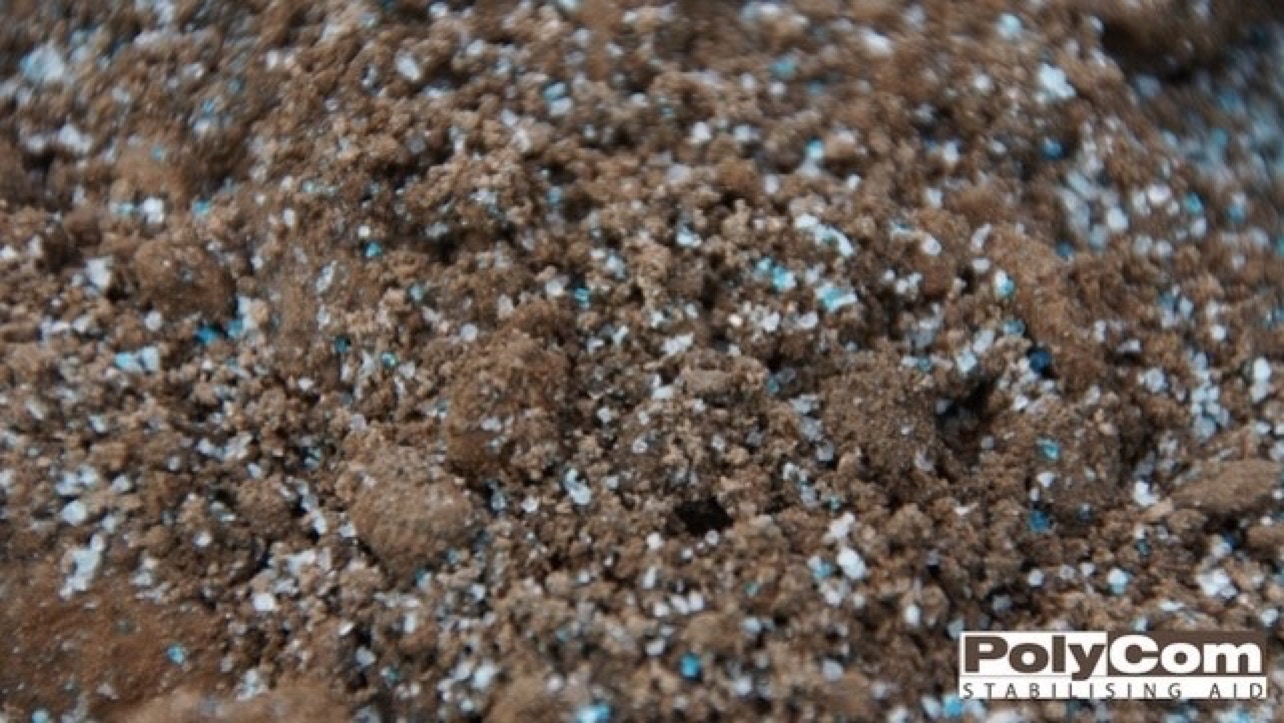
However councils can maximise the impact of their road maintenance budgets by incorporating PolyComStabilising Aid into their unsealed road programs.
Whilst the Roads to Recovery (R2R) programme is an essential element in maintaining local government road networks, for many councils the latest instalment falls short of addressing a critical backlog of road maintenance.
PolyCom is an award winning innovation that addresses the problem of sourcing unaffordable finite quarry materials and gravel resources. Proven to reduce maintenance by up to six times, PolyCom is simply added to existing unsealed road materials during routine maintenance. Councils procure PolyCom in a highly concentrated form, with each 2kg pack able to treat 50m3, or 500m2 at 100mm depth.
Enough product supply can be transported in the back of a car or utility to treat many kilometres of road.
OHS and environment compliant, procurement of the field-proven PolyCom solution means councils and civil road contractors:
• don’t have to cart new gravel to site
• don’t need to transport large quantities of product, and
• don’t need to mix PolyCom in a water cart
As PolyCom is applied in granular form with a dry spreader, council works crew simply add water to the road materials as needed, and work the product in with their existing road plant -grader and roller.
“More and more government departments and road contractors are sharing the benefits of using PolyCom, as they discover they can use materials previously considered not suitable for road construction and maintenance,” explains Steve Hey, Engineering Applications Manager for Earthco Projects, PolyCom distributor for Victoria, NSW and Tasmania. “This has enabled them to make considerable savings on road construction and maintenance as well as lowering their carbon footprint.”
With an Australia-wide network of distributors, PolyCom is suitable for application in almost any material, and is simple and ready to use.